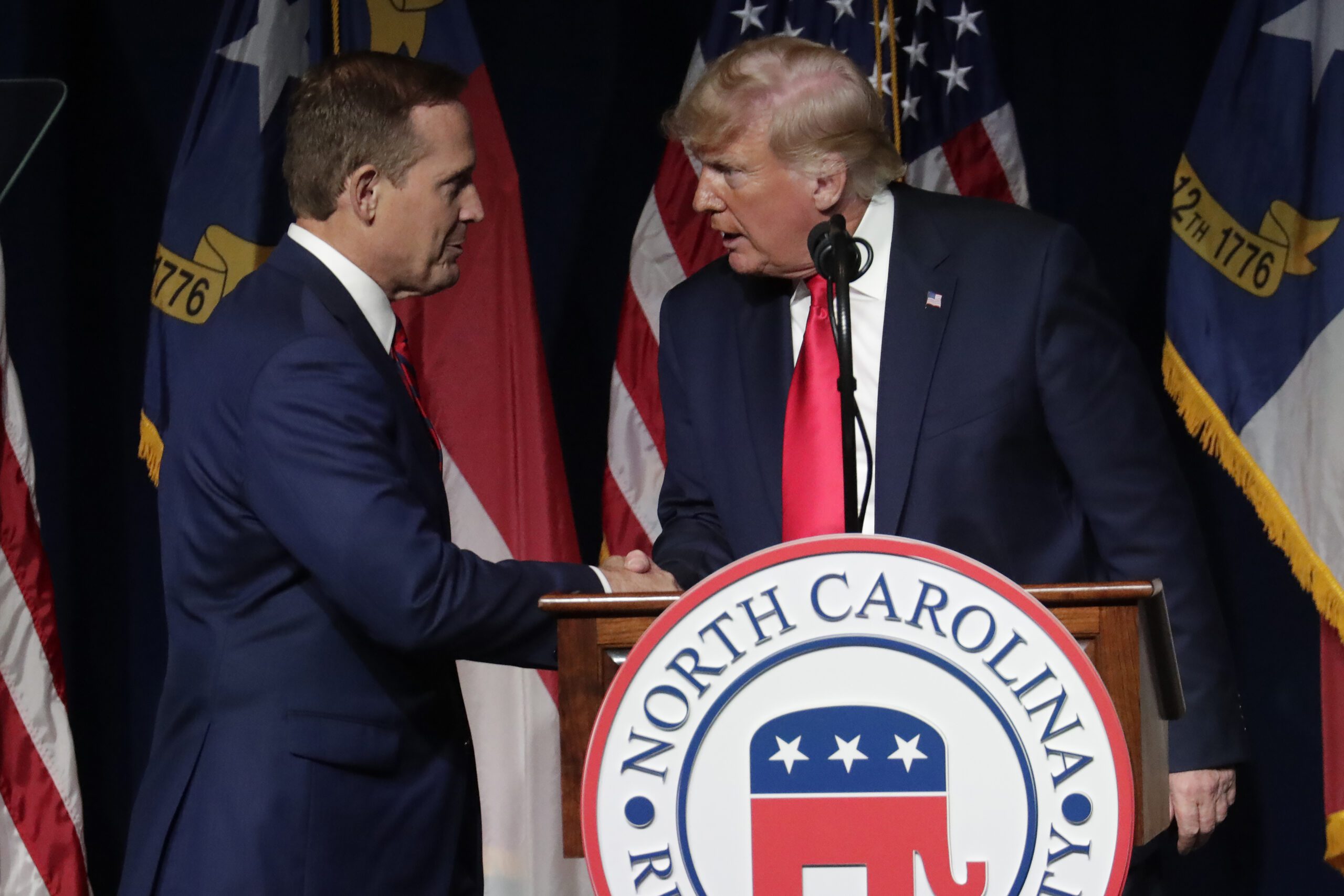
RALEIGH — The third-quarter reports due to the Federal Election Commission show a widening gap in both the Republican and Democratic primaries for the U.S. Senate.
For Democrats, former N.C. Supreme Court Chief Justice Cheri Beasley continued to outpace state Sen. Jeff Jackson. Beasley led overall fundraising in the third quarter, totaling $1.45 million in the quarter, and a total of $2.73 million since she entered the race in April.
Jackson, who announced his run in January, reported $990,000 in the quarter and a total of $2.9 million in the campaign.
Both Beasley and Jackson spent similar amounts in the quarter, with the former chief justice spending $660,000 and the Mecklenburg legislator spending $576,000.
Beasley has a half-million advantage in the critical cash-on-hand figure, with $1.6 million to Jackson’s $1.1 million.
Communications director for the Beasley campaign, former Gov. Roy Cooper press secretary Dory MacMillan, wrote on Twitter following Beasley’s report, “We’re building a people-powered campaign and seeing enthusiasm for Cheri’s candidacy across the state.”
Her fundraising has been notable in spite of several campaign staffers leaving the campaign amid a joint fundraising effort with controversial Missouri U.S. Rep. Cori Bush, an effort that appears to have disbanded, according to filings with the FEC.
Last week, Beasley was also endorsed by former Charlotte mayor and two-time unsuccessful U.S. Senate candidate Harvey Gantt.
Gantt’s endorsement was the latest from the Charlotte area to not go to Jackson.
The state senator’s campaign, which has featured town hall tours all over the state, has been expensive.
Since January, Jackson has spent $1.71 million in the race but still trails Beasley. According to his Twitter account, he has also hosted 130 town halls statewide.
Some have noted that the recent uproar over a video taken of Republican Lt. Gov. Mark Robinson in June appeared to be a maneuver by Jackson’s campaign to divert attention from Beasley’s fundraising quarter.
The rest of the Democratic Senate pack is led by former state Sen. Erica Smith, who raised $129,000 in the quarter but has just $65,000 on hand. Smith, who ran against Cal Cunningham in 2020, has staked out more progressive positions than Beasley or Jackson, commenting frequently on the need to confront climate change and a pledge to “break up big energy” if elected.
Following Smith is Durham virologist Richard Watkins and Beaufort mayor Rett Newton, who raised $38,000 and $32,000 respectively.
The winner of the third quarter among state Republicans is once again in the eye of the beholder.

U.S. Rep. Ted Budd and former Gov. Pat McCrory posted similar contribution totals in their second FEC reports.
Budd reported $967,000 in the quarter and enters the final three months of 2021 with a cash-on-hand total of $2 million, the only candidate on either side to cross that threshold. The three-term congressman spent $732,000 as well — with senior advisor Jonathan Felts calling it an investment in grassroots support. The campaign announced last week it had campaign “crew chiefs” in all 100 counties.
McCrory raised $1.02 million and spent $392,000, leaving him with $1.59 million on hand. The former governor has raised a total of $2.26 million thus far in the race. He recently earned an endorsement from Karl Rove, who has sent fundraising solicitations on his behalf.
The third candidate in the Republican field, former U.S. Rep. Mark Walker, raised $122,000 in the quarter and spent $422,000, with his cash-on-hand amount at $612,000. Walker, for his part, however, does not employ the fundraising apparatus of the other candidates. In comments to North State Journal in late July, he said fundraising and polling are two distinct areas.
In his first run for Congress in 2014, Walker trailed his opponents in fundraising but ultimately succeeded in the race.
Marjorie K. Eastman, who entered the primary in late September, has not filed an FEC report and neither has Ken Harper, who has made social media confrontations a central feature of his campaign.
While the Democratic field has largely avoided candidate attacks against one another to this point, the Republican field has featured broadsides against Budd from both McCrory and Walker.
McCrory and Walker have in effect teamed up against Budd, likely due to the surprise endorsement from former President Donald Trump at the June N.C. Republican Party convention.
On his website, McCrory takes aim at Budd, writing that Budd attempted to “hide another disastrous fundraising performance.” He also accused Budd of being “bought and paid for” by Washington special interests.
That has also been a repeated criticism of Budd from Walker, although Walker was elected to Congress two years before Budd.
For his part, Budd has steered clear of the back-and-forth, and had a busy September of endorsements. Budd rolled out former U.S. Rep. George Holding; conservative firebrand U.S. Rep. Jim Jordan of Ohio, who will travel to the state this weekend; 33 current and former state legislators; and Gun Owners of America, a national firearms rights organization.



